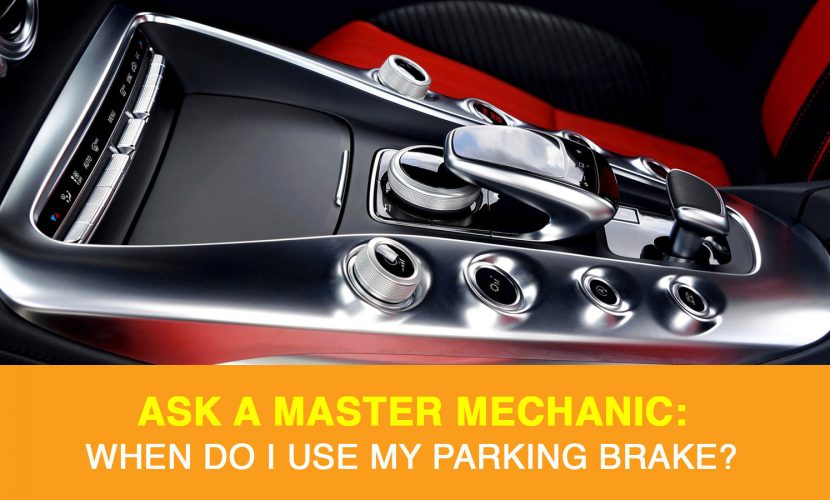
ASK A MASTER MECHANIC: WHEN SHOULD I USE MY PARKING BRAKE?
A parking brake is in every car, but that doesn’t mean that every driver knows how–or when–to use it. Your emergency or parking brake is certainly a useful–and often necessary–feature to have in your vehicle.
The name itself can be confusing. Is it for emergencies or parking? When should you use it? We got all the answer about this critical safety feature from a Master Mechanic.
HOW DOES THE PARKING BRAKE WORK?
Your parking brake is usually connected to the rear brakes and, when engaged, presses against them with less force than when you use your pedal. When it was first introduced to vehicles, emergency brakes were designed to help stop a vehicle in the event that the primary braking system failed. Today, most drivers use it to keep their vehicles safely in place when parked, especially on a hill or slope. This is why most people refer to it as a parking break today.
Generally, there are four types of parking brakes. If you know where to look, you can tell which parking brake system your car has just by sitting in the cabin. If you’re not familiar with all of these parking brake systems, you can always check your owner’s manual to find out which you have.
- Stick lever – usually on older vehicles, positioned on the instrument panel
- Center lever –Most standard parking brake system. It’s located between the two front seats.
- Foot pedal – located on the floor to the left of the other pedals.
- Push button – Mostly in newer models, located on the console.
WHEN SHOULD YOU USE YOUR PARKING BRAKE?
The easy (and safe) answer? Every single time you park! Why? A parking pawl, is a device that locks your transmission when you put your car in park with your parking brake engaged. After years and years of use, or if you’re constantly parking on a hill, it can weaken or fail all together. Your parking brake acts as a safety net for you and other drivers by ensuring your vehicle doesn’t roll away, even if your parking pawl malfunctions. So, yes, your parking brake should be engaged every time you park, regardless of the incline you’re parking on.
NOTE: You can engage the parking brake before putting the car into “Park”. This will limit the stress you put on your transmission and help prevent parking failure. In addition to being an added layer of security, it could also save you money in the long-run
CAN A PARKING BRAKE FAIL, TOO?
Yes. Like any part in your car, your parking brake can malfunction or break. If not used regularly, parking brakes can corrode and eventually snap.
Brakes aren’t something we recommend you take a chance with. You typically won’t know there’s an issue with your braking system until you need it most, so the safest bet is to have your brakes regularly inspected by your local Master Mechanic.
Our trained Technicians can safely test your vehicle and easily determine what needs to be repaired or replaced. In most cases, we can determine the cause of the issue, too, to keep your new braking system healthy.
If you have any questions about your brakes, parking brake, or overall vehicle health, don’t hesitate to contact your local Master Mechanic.

